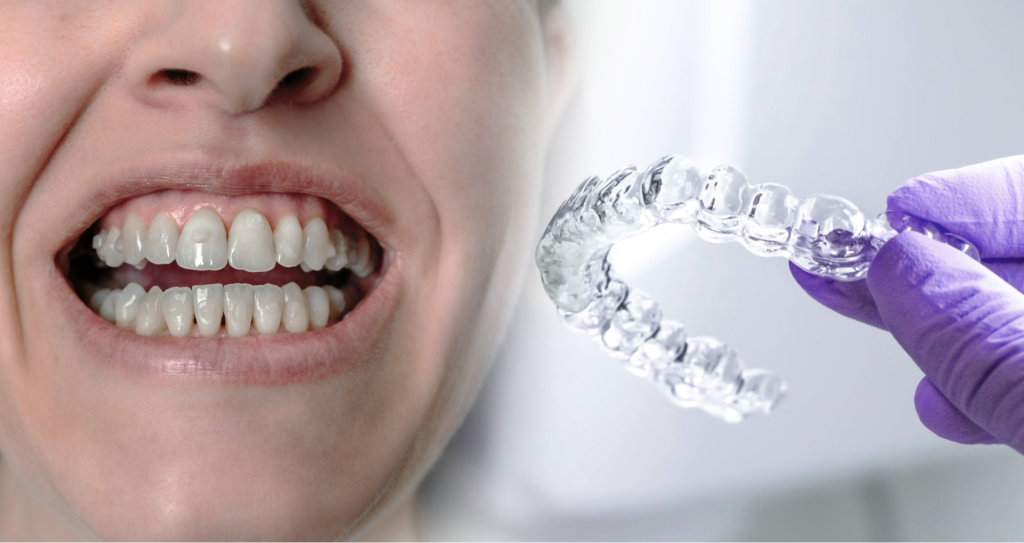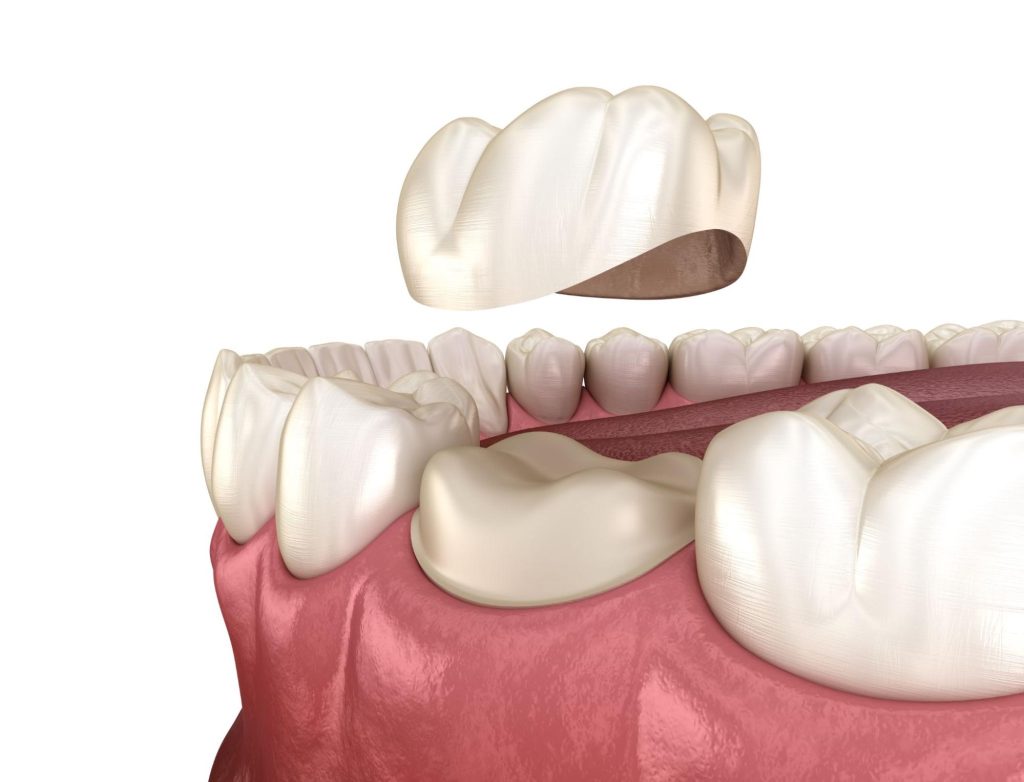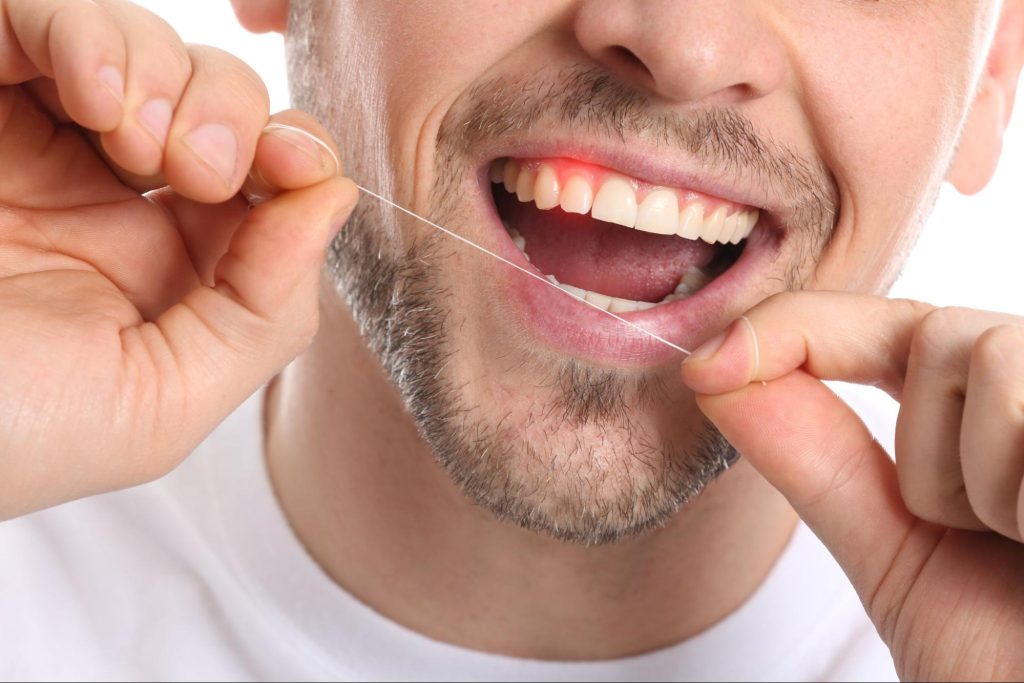Do you feel exhausted even after a full night’s sleep? Or are your teeth showing visible signs of wear and tear? Then there’s a possibility you might have sleep apnoea.
Sleep apnoea is a sleep disorder in which a person experiences brief interruptions in breathing during sleep. These interruptions can last several seconds or minutes and may happen multiple times throughout the night.
Scary as that may sound, sleep apnoea has various treatment options once accurately diagnosed. One of the most common is a sleep apnoea mouth guard. If you may be experiencing any of the symptoms of sleep apnoea and are worried about its health risks, we can help. Read our blog to learn about this sleep disorder, sleep apnoea mouthguards, their benefits and alternatives.
Types of Sleep Apnoea Mouth Guards
There are two types of sleep apnoea; obstructive and central. Obstructive sleep apnoea is the most common form and occurs when the muscles in the throat relax, causing the airway to narrow or close completely. This can lead to loud snoring, gasping, or choking sounds as the person struggles to breathe. Central sleep apnoea is less common and happens when the brain fails to send the proper signals to the muscles that control breathing.
The first step towards treating your sleep apnoea is getting an accurate diagnosis and getting to the root cause of your sleep apnoea. Once you know which type of sleep apnoea you have and its root cause, your dentist can help recommend a personalised treatment.
Some of them include:
- Mandibular Advancement Devices
A mandibular advancement splint(MAD) or sleep apnoea mouthguard is a customised oral appliance for treating sleep apnoea. It’s worn in the mouth while sleeping, helping position the lower jaw slightly forward to keep the airway open and prevent the throat muscles from collapsing and obstructing breathing. By holding the jaw in a more forward position, the sleep apnoea mouthguard helps reduce or eliminate snoring and improve breathing during sleep. A sleep apnoea mouth guard is custom fitted to your mouth by our dentists and is adjusted during the course of the treatment to achieve optimal results.
While mandibular advancement splints are generally safe and effective for treating mild to moderate obstructive sleep apnoea, they may not be suitable for everyone and should only be used under the guidance of a healthcare professional.
- Tongue-Retaining Devices
Tongue retaining devices, also known as TRDs, are oral appliances that hold your tongue out by pushing it forward. They are generally more uncomfortable because they hold your tongue in one position and may increase saliva production. This continuous need to swallow can be more disruptive to your sleep than a custom mouthguard which fits your teeth snugly and with minimal discomfort.
- Soft Palate Lifters
Soft palate lifters or palatal implants are surgical procedures that involve the insertion of small implants into the soft palate at the back of the throat. By lifting and supporting the soft palate, soft palate lifters can help to reduce snoring and improve breathing for people with obstructive sleep apnoea.
Compared to sleep apnoea mouth guards or mandibular advancement splints, this is a more invasive procedure which may not be preferred by everyone as it requires surgery.
Benefits of Sleep Apnoea Mouth Guards
Sleep apnoea mouth guards offer multiple benefits to people with sleep apnoea, helping control breathing and allowing both you and your loved ones to enjoy a restful sleep.
Some of the benefits of sleep apnoea mouthguards include:
- Reduce shallow breathing or pauses
Sleep apnoea appliances help keep the airway open during sleep, reducing or eliminating breathing interruptions or pauses. This improves sleep quality and allows you a safe and sound sleep.
- Significantly improve blood oxygen levels
During sleep apnoea, breathing is partially or completely interrupted. This may cause the oxygen levels in your blood to drop. This drop in oxygen levels can cause several health problems, including high blood pressure, heart disease, and stroke. Sleep apnoea mouth guards keep the airway open for improved blood oxygen levels.
- Decrease the frequency and volume of snoring
Snoring is caused by the vibration of soft tissues in the throat when airflow is partially obstructed during sleep. Preventing the obstructions that lead to snoring, sleep apnoea devices can decrease snoring frequency and volume for a more peaceful and quiet sleep.
- Reduce daytime sleepiness
Sleep apnoea mouthguards are custom fitted to your teeth for a flawless fit. This offers a comfortable and effective way to reduce sleep interruptions caused by obstructions – giving you undisrupted sleep to reduce daytime drowsiness, lethargy, and mood swings, improving life quality and overall health.
Sleep Apnoea Mouth Guard Alternatives
Sleep apnoea mouth guards are commonly used to treat mild to moderate obstructive sleep apnoea. However, there are several alternatives to mouthguards that may be more suitable depending on your health and lifestyle. They include:
Continuous Positive Airway Pressure (CPAP) Therapy
CPAP therapy involves wearing a mask over the nose and/or mouth and delivering a continuous stream of pressurised air to keep the airway open during sleep. This requires wearing a mask when sleeping and may not be a preferred option for some people due to the general discomfort or other reasons.
BiPAP Therapy
BiPAP therapy is similar to CPAP but uses two levels of pressure to support breathing. It’s often recommended for patients with more severe sleep apnoea or other respiratory issues.
Other treatments for sleep apnoea include lifestyle changes such as weight loss, a healthy diet and treating stress with meditation and exercise. Sleep therapy and treating nasal congestion caused by sinus and allergies also help with sleep apnoea.
When do you need a sleep apnoea mouth guard?
Sleep apnoea mouth guard is suitable for people struggling with mild to moderate obstructive sleep apnoea. It is a minimally invasive and comfortable treatment to help you sleep restfully and move towards a healthier lifestyle and lasting relief. It’s important to note that an accurate diagnosis and getting to the root cause of your sleep apnoea help provide permanent relief from this condition.
Managing Sleep Apnoea with Mosman Fine Dental
Obstructive sleep apnoea and snoring should not be taken lightly as disrupted sleep patterns affect your health and quality of life. At Mosman Fine Dental, we work with you to diagnose and treat OSA and snoring with personalised treatment plans, identifying the causes and helping you manage your symptoms. Our gentle dentists continuously monitor your condition, making device adjustments and recommending sleep studies if required to deliver long-term relief. If you’re experiencing dry mouth, headaches, and sleeplessness, book a consultation with us to assess your snoring or OSA. We’re always available to help you in any way we can, be it with dental problems or sleep apnoea.



